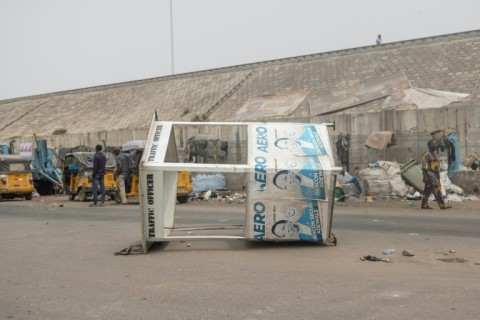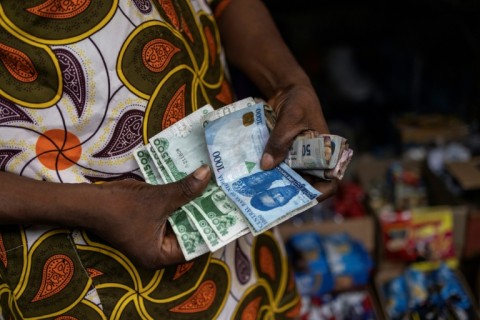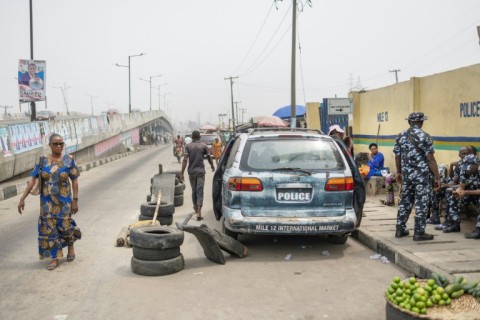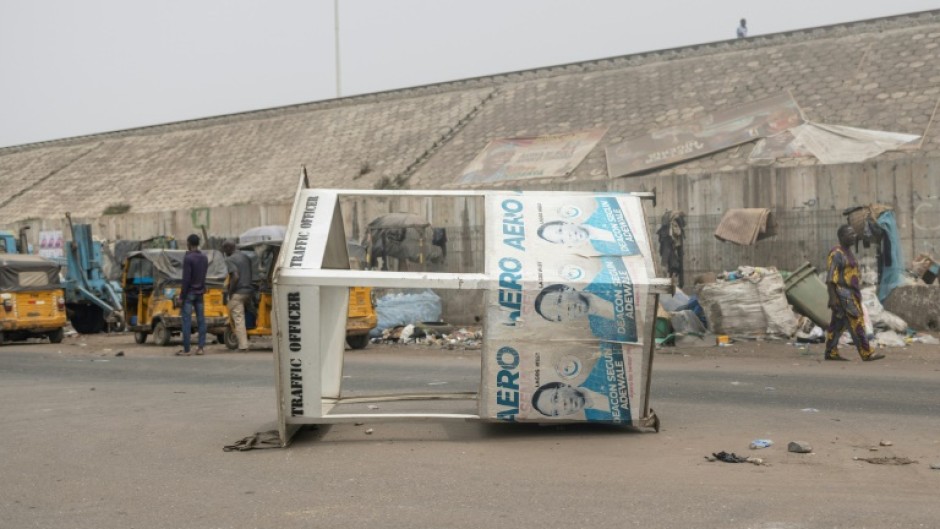
LAGOS - Police fired teargas on Friday to disperse angry protesters in Nigeria's commercial capital Lagos, police and residents said, after crowds blocked roads to demonstrate against the scarcity of banknotes.
Nigeria has been struggling with a shortage of hard cash since the Central Bank of Nigeria (CBN) began to swap old bills of the local naira currency for new, re-designed ones, leading to a shortfall in banknotes.
The lack of cash has triggered protests in major cities and seen customers attack banks and barricade roads just days before Nigeria holds a February 25 presidential election.
President Muhammadu Buhari in a Thursday broadcast sought to ease the situation by allowing old 200 naira bills to circulate until April 10 alongside new 500 and 1,000 naira notes.
On Friday, Lagos traders, markets, transporters and petrol stations started to reject the old notes, sparking riots in parts of the megalopolis of over 20 million people.
At Ojota, close to the busy Mile 12 food market, a crowd gathered by seven am and set fire to used tyres to block the popular Ikorodu road. Many motorists were stranded.

Police were quickly deployed to clear crowds in the area, an epicentre for popular unrest.
"We deployed our men to the scene to prevent a breakdown of law and order. No one was injured because we only used teargas to disperse the crowd," a senior police officer told AFP.
Similar protests erupted in the Agege, Ikotu, Iyana-Iba, Ipaja and Abule-Egba areas as angry protesters barricaded roads and major streets with burning tyres, residents said.
Business owners were forced to close to avoid attacks and vandalisation.
Lagos State governor Babajide Sanwo-Olu, a member of Buhari's ruling All Progressives Congress APC party, urged city residents to remain calm, blaming the "pain" on federal government measures.
"Residents should continue to be law-abiding by shunning any form of incitement by mischief makers," he said in a statement.
- Party tensions -
The cash policy is generating tensions inside the ruling APC party, with some state governors lashing out at Buhari's government for causing chaos that could hurt APC's election chances.
Ruling Party candidate Bola Tinubu, a former Lagos governor, has even accused enemies within the presidency of fomenting the crisis to frustrate his election bid.

Several APC governors have sued the government over the cash policy, and the Supreme Court is expected to rule on the matter next week.
A Lagos transporter, Bawo Adegbenro, said unrest in the city started on Friday when commercial bus drivers refused to accept old 500 and 1,000 bills from commuters.
"Many people were stranded as they could not get a bus to their destination. This led to the riots in Ojota which the police have now quelled," he told AFP.
"I have parked my own bus in the garage until it is safe to work."
The central bank said the currency policy was aimed at clearing up excess and counterfeit naira as well as discouraging cash ransom payments to kidnappers and bandits.
The policy was also introduced to promote cashless transactions by limiting the use of cash for businesses.
In next week's election, APC's Tinubu is facing off against main opposition Peoples Democratic Party or PDP's Atiku Abubakar and Labour Party's Peter Obi, who is challenging the APC and PDP dominance for the first time.
joa/pma/bp
By Joel Olatunde Agoi

